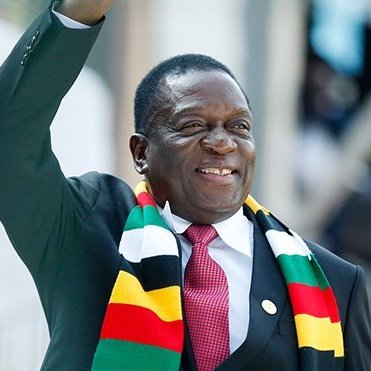Zimbabwe’s President Emmerson Mnangagwa has vowed to ensure that the country’s upcoming general elections will be free and fair. Speaking at an event to mark the country’s 43rd independence anniversary, Emmerson Mnangagwa promised that his government has put measures in place to ensure credible and transparent polls. The 80-year-old leader, who is seeking re-election, urged Zimbabweans to reject violence before, during, and after the crucial vote.
Emmerson Mnangagwa’s ZANU-PF party has previously been accused of using violence and intimidation to instil fear in opponents during elections. Following the 2018 polls, which Emmerson Mnangagwa won amid allegations of rigging from his main opponent, Nelson Chamisa, soldiers killed five people when opposition protestors took to the streets of the capital, Harare, burning tires and pulling down street signs.
Despite his promises of free and fair elections, Emmerson Mnangagwa issued a warning to what he termed as “rogue civic society organizations.” The president accused these groups of sowing “seeds of division and disharmony” in the country. In early February 2023, Zimbabwe’s parliament passed a bill banning civil society organizations from engaging in politics. The legislation, which caused an outcry from human rights groups and the international community, allows the government to intervene in the governance and activities of charities and civil groups.
Despite the country’s challenges, Emmerson Mnangagwa remains confident that he can steer Zimbabwe’s economy out of the doldrums. The president, nicknamed “the Crocodile” for his ruthless cunning, took over from strongman ruler Robert Mugabe in 2017 after a military-led coup. Emmerson Mnangagwa has since faced widespread discontent, with many Zimbabweans frustrated by the slow pace of reforms aimed at addressing entrenched poverty, chronic power cuts, and unemployment.
The upcoming presidential and legislative polls, expected to take place in August, will provide Emmerson Mnangagwa with an opportunity to win a fresh mandate to lead Zimbabwe for another five years. However, the vote will also be an acid test for the president’s popularity and his commitment to democratic reforms. With civil society organizations facing a bleak future in Zimbabwe, it remains to be seen how much space Emmerson Mnangagwa will allow for dissenting voices in the run-up to the polls.
In conclusion, President Emmerson Mnangagwa’s promise of credible and transparent polls is a positive development for Zimbabwe. However, concerns remain about the role of the military in the country’s political affairs, and the government’s ongoing crackdown on civil society organizations. The upcoming polls will be an opportunity for Emmerson Mnangagwa to demonstrate his commitment to democratic values and to address the concerns of ordinary Zimbabweans.
Zimbabwe has been going through a period of economic instability and political unrest. However, the country’s leadership is committed to making things better for the people. President Emmerson Mnangagwa has promised to hold free and fair elections, something that has not been seen in the country for a long time. The president has also put measures in place to ensure that the elections are credible and transparent. This move has been welcomed by many Zimbabweans, who are hoping for a peaceful transition of power.
Emmerson Mnangagwa’s ZANU-PF party has been accused of using violence and intimidation to stay in power. However, the president has assured Zimbabweans that this will not happen in the upcoming polls. Emmerson Mnangagwa has urged Zimbabweans to reject violence before, during, and after the vote. This is a positive development, and it shows that the president is committed to democratic values.
Despite this, there are concerns about the role of the military in Zimbabwe’s political affairs. The military has been accused of supporting Emmerson Mnangagwa’s government and suppressing opposition voices. This has raised concerns about the credibility and fairness of the upcoming elections.
Zimbabwe has a long history of political violence and intimidation, particularly during elections. Mnangagwa’s ZANU-PF party has been accused of using violence and intimidation to instil fear in opponents during elections. In the past, opposition supporters have been harassed, beaten and even killed for expressing their political beliefs.
In 2018, soldiers killed five people when opposition protestors alleging fraud took to the streets of Harare, burning tires and pulling down street signs. The incident drew widespread condemnation from the international community and raised questions about the military’s role in politics.
Despite his promises of free and fair elections, many Zimbabweans remain sceptical about Mnangagwa’s commitment to democracy. The country’s history of political violence and intimidation has left many wary of the upcoming elections and the potential for unrest.
Image Credit: Emmerson Mnangagwa/Twitter




